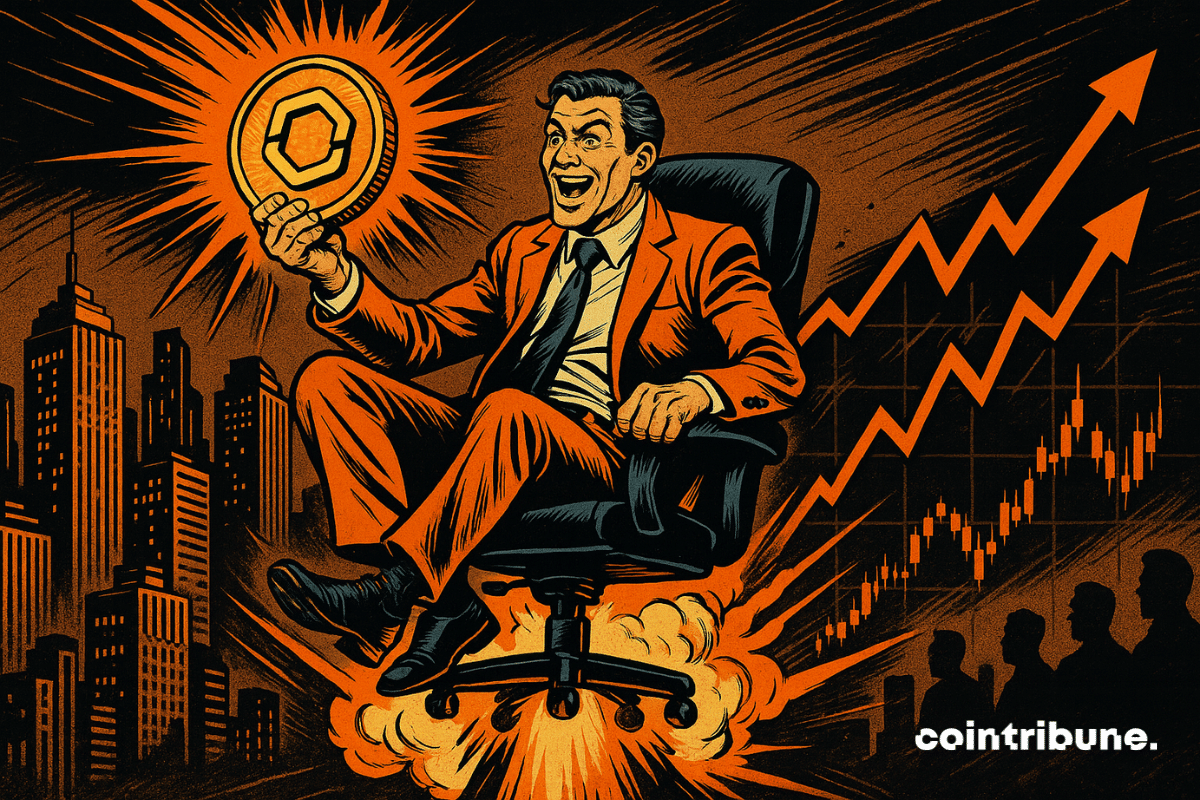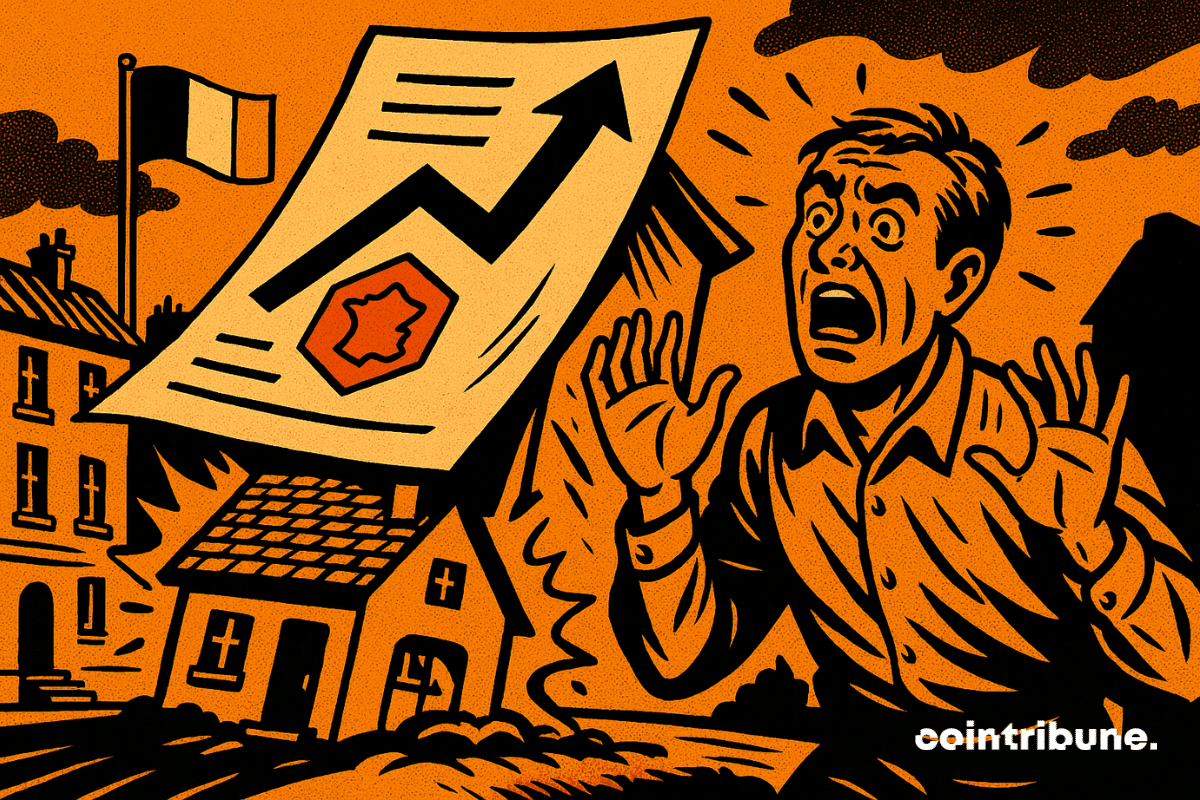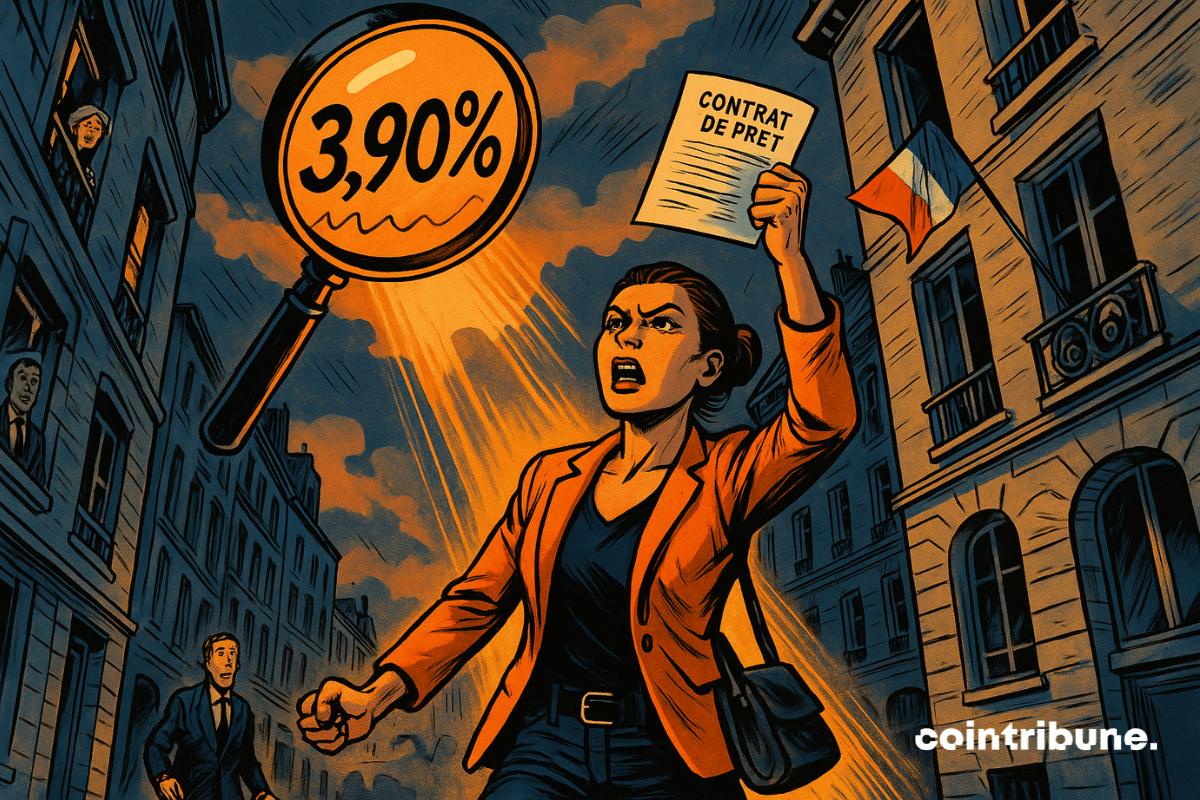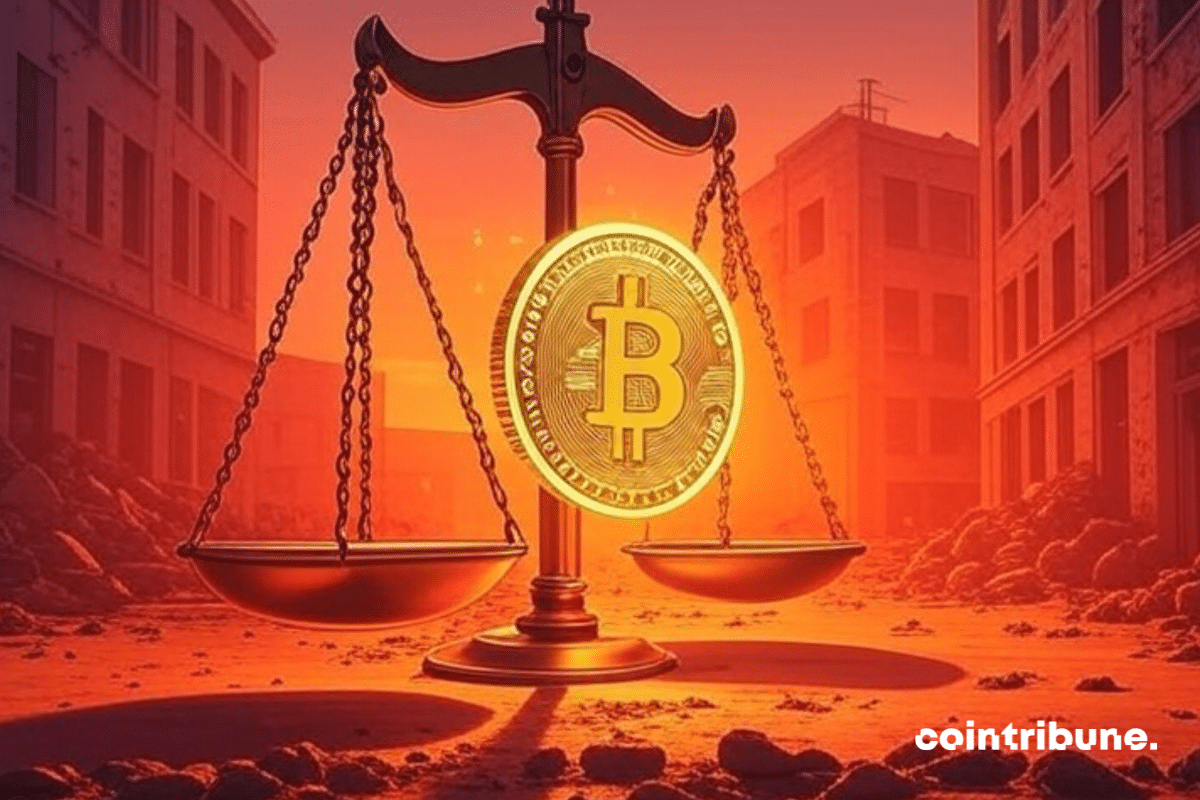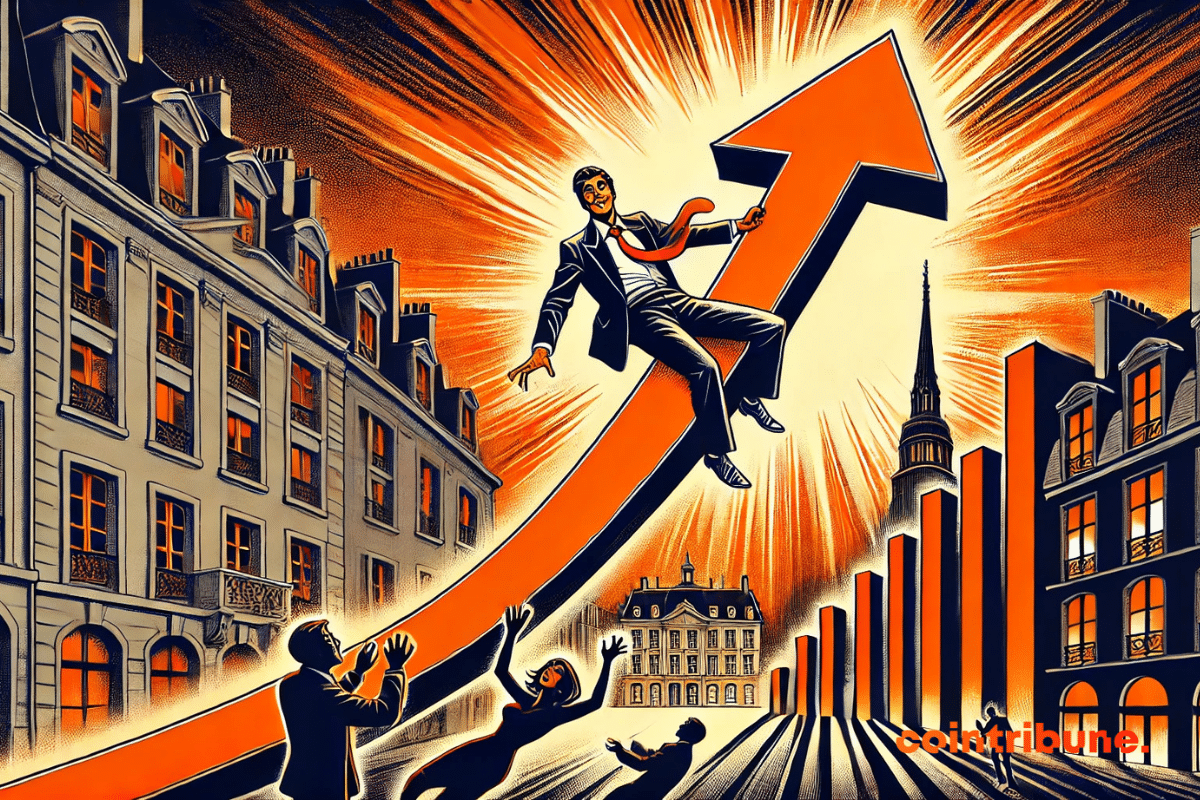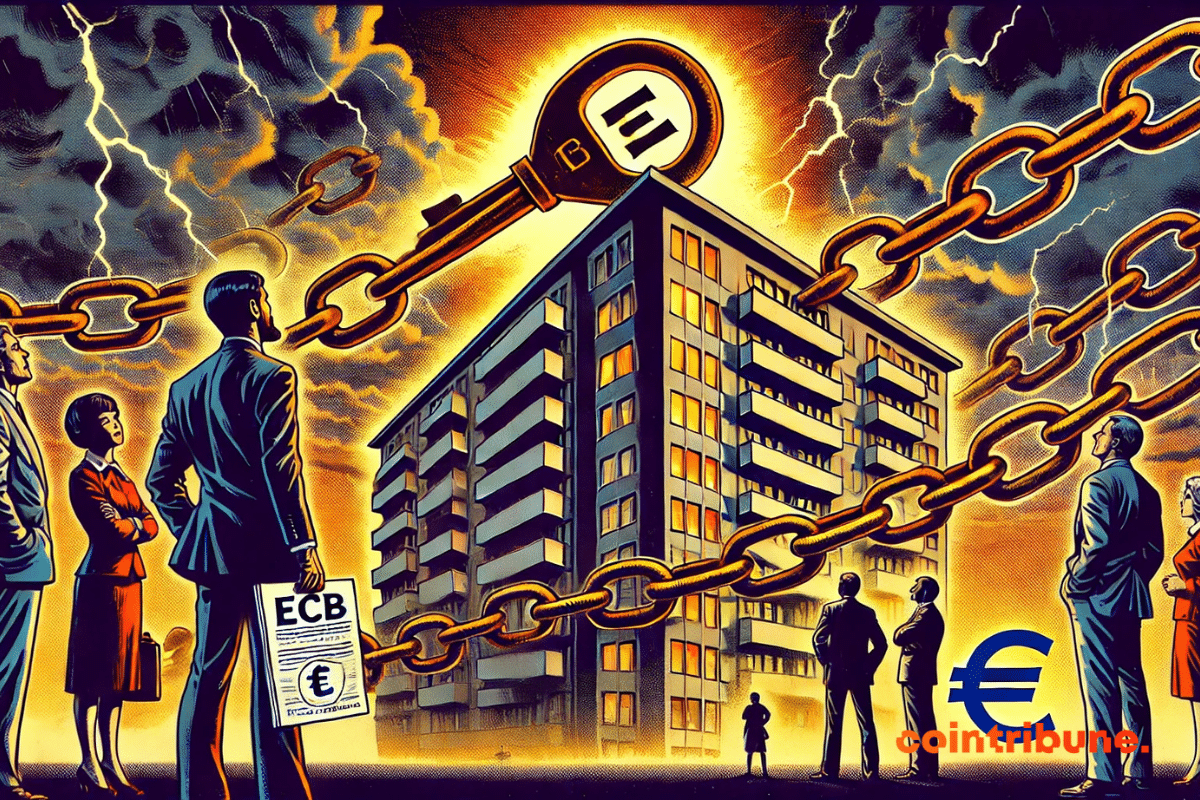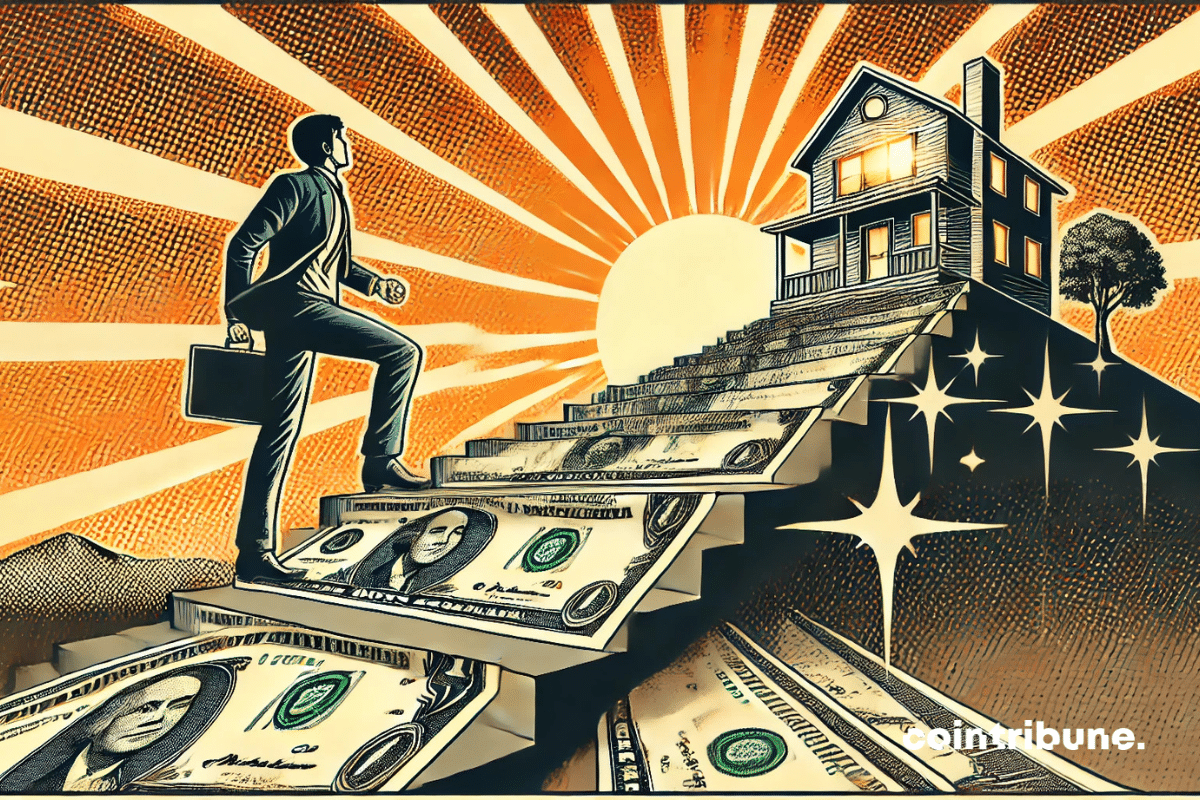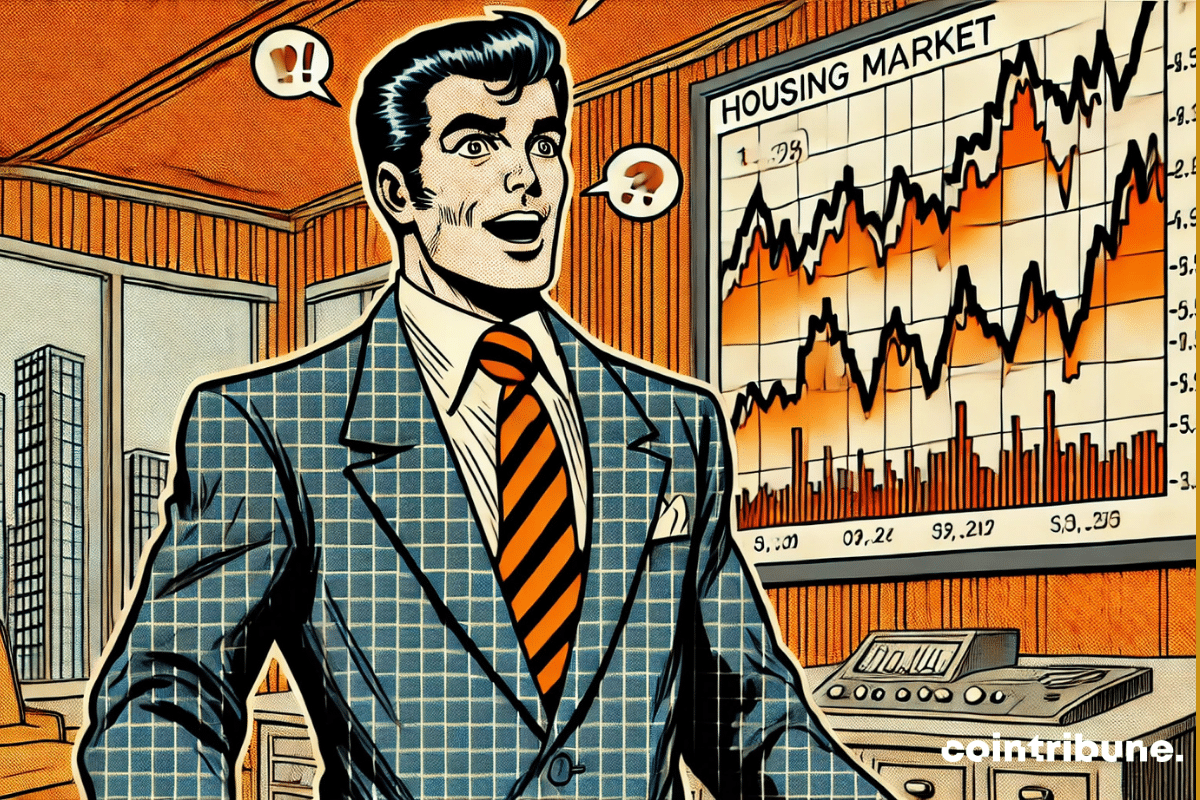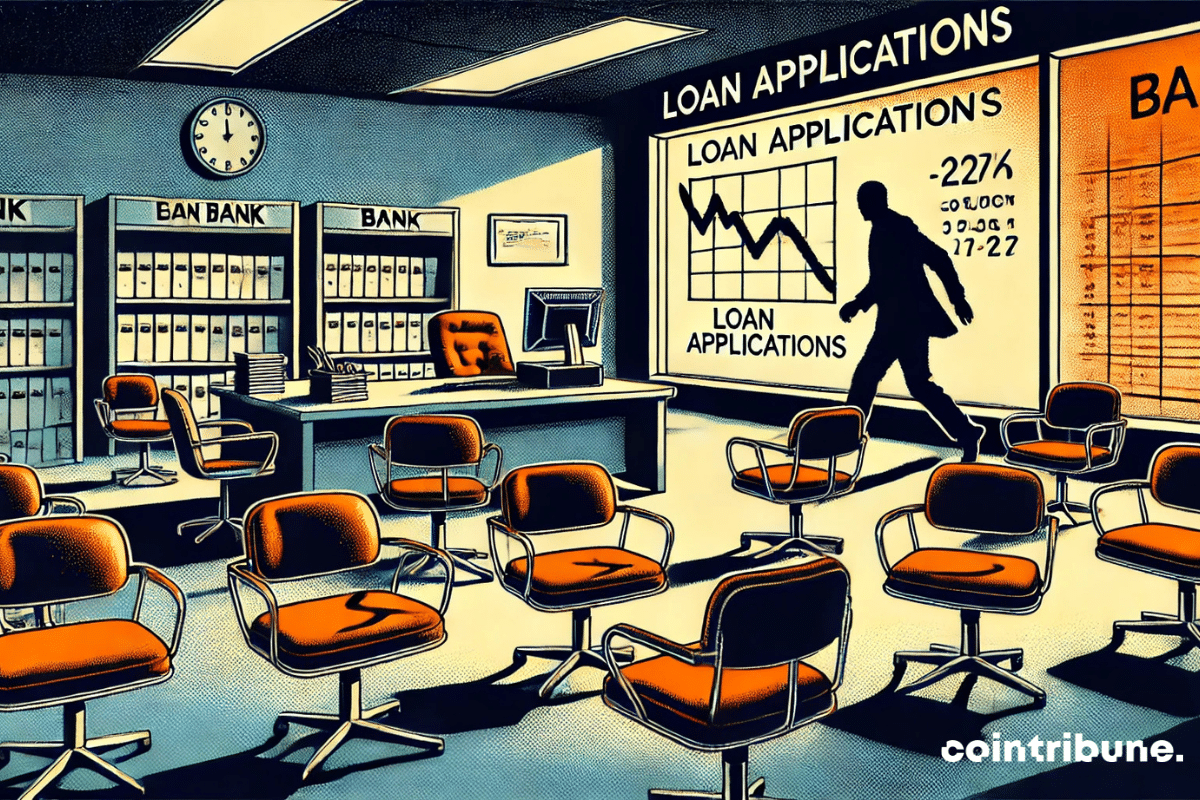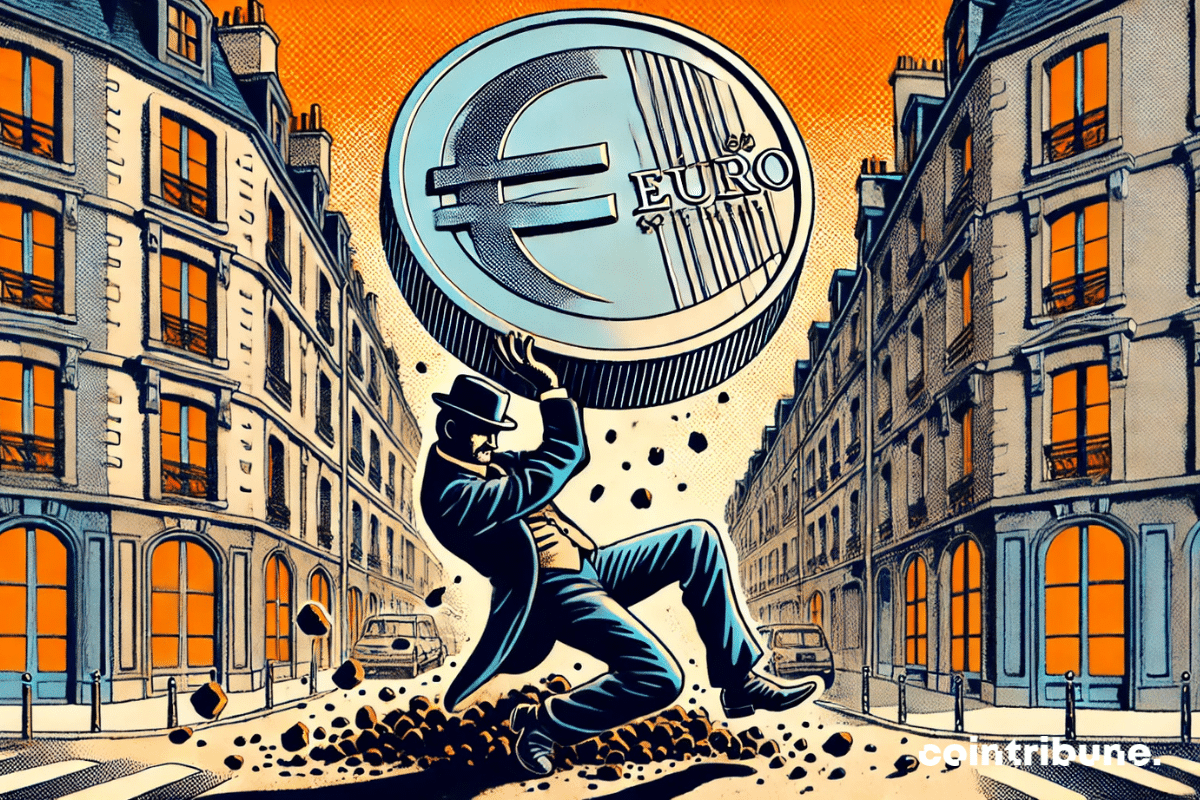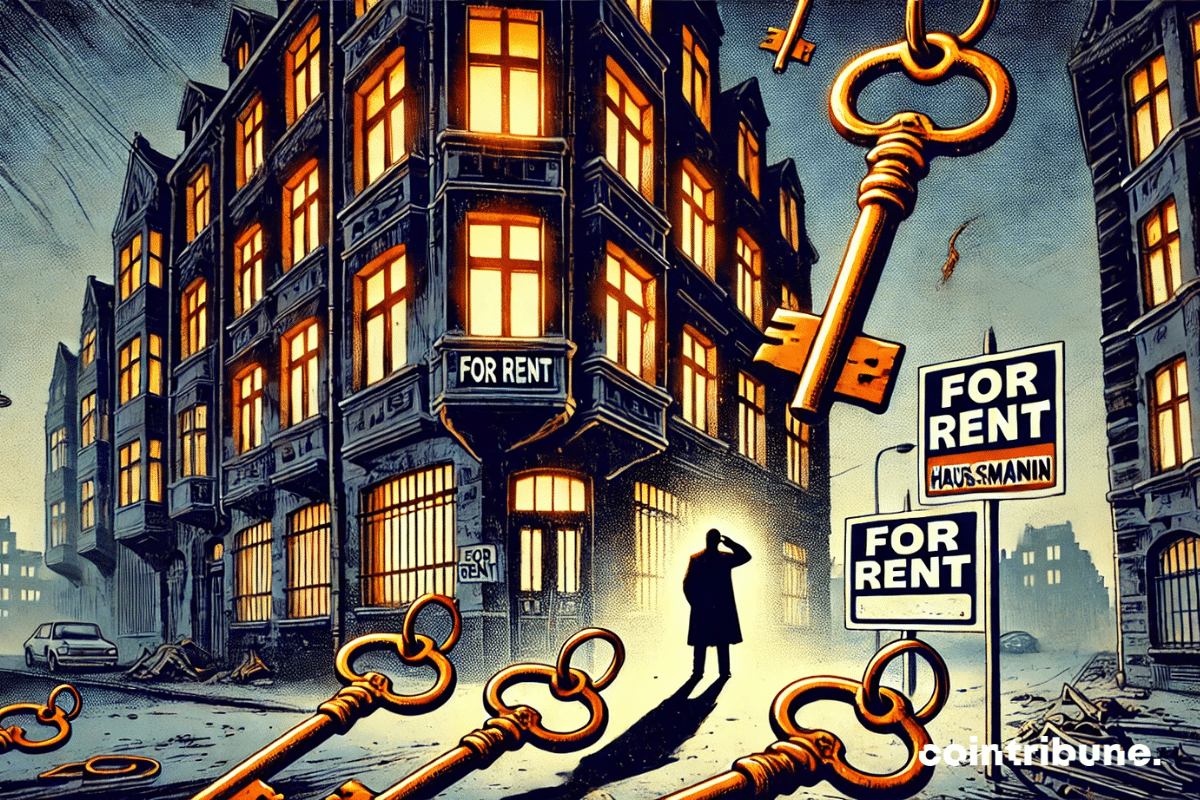Tokenized real estate takes on a new dimension with RealT, an innovative platform that disrupts traditional rental investment codes. By fractionating American real estate properties into digital tokens on blockchain, this company based in Florida and Delaware opens the doors of international real estate to all investors, regardless of their financial capacity.
Immobilier
A promoter in deficit, a crypto in the spotlight, a 60% jump on the stock market... What if LINK became the reinforced concrete of ruined treasuries?
While inflation slows on a national scale, property owners do not escape the reality of the figures. Since August 25, the first property tax notices have arrived, with a national increase set at 1.7%. Indeed, behind this mechanical revaluation, much higher local increases are quietly added. This tax burden, far from being insignificant, reveals growing tensions between budget-pressured local authorities and already weakened taxpayers.
American Senator Cynthia Lummis officially introduced the 21st Century Mortgage Act, a groundbreaking legislation that would require government-sponsored enterprises to consider digital assets when assessing eligibility for single-family mortgage loans.
The drop in mortgage rates marks an unexpected pause. While the market was beginning to restart, the curves are freezing, diverging from forecasts. This turnaround intrigues both buyers and investors, caught between hopes and uncertainties. Why are rates no longer falling, despite a more flexible monetary context? This blockage raises questions about the financing dynamics in France and reveals deeper tensions, at the very moment when real estate is trying to emerge from its stagnation.
Inflation impoverishes billions of people while enriching a few million millionaires. Bitcoin is the antidote.
The Trump family crypto game inspired by Monopoly: a project that could transform digital real estate. Details here!
Real estate is regaining its color. After a long period of waiting, prices are rising again in many French cities, signaling an unexpected turning point in the market. This upturn, which began at the start of the year, is intensifying due to more attractive borrowing rates and a gradual return of buyers. Both professionals and individuals are closely watching this emerging dynamic, which reshuffles the cards after months of stagnation. In light of this resurgence in activity, observers are pondering: is this a simple cyclical rebound or a true reversal of the cycle?
A global study reveals that real estate remains widely used for money laundering, with gaps identified in all the analyzed countries, including France, which nevertheless ranks among the good students.
Buying a property without a significant down payment is an increasingly difficult challenge, especially for first-time buyers. While mortgage rates continue to exceed 3%, and new prices remain high despite the crisis, the government is expanding access conditions for zero-interest loans (PTZ) starting from April 1, 2025. This is a new initiative that pertains to two lesser-known schemes that allow purchasing a home at a lower cost and spreading out the acquisition.
The European financial landscape has just undergone a major turning point with the European Central Bank's (ECB) decision to lower its key interest rates by 0.25 percentage points. This measure does not go unnoticed in a context where access to mortgage credit remains a key issue for households and investors. This decrease could stimulate demand and reshape market dynamics, but observers remain divided on its actual impact.
Access to mortgage credit is a key barometer of economic health and the purchasing power of households. After a drastic decline in lending volumes in 2023, the European Central Bank (ECB) has initiated a shift with its first rate cut. This decision, welcomed by the Governor of the Bank of France, François Villeroy de Galhau, is accompanied by a series of indicators that suggest a gradual recovery in the market. But is this upswing sustainable? And above all, will it be enough to permanently reverse the trend for borrowers and actors in the real estate sector?
The new real estate market has entered an unprecedented slowdown spiral. While access to homeownership remains a priority for many households, the production of new housing is at its lowest level in over 50 years. In 2024, only 59,000 new homes were put up for sale, a decrease of 50% compared to 2022. Thus, this crisis, much deeper than a simple cyclical slowdown, is the result of a combination of structural and economic factors. Rising construction costs, increasingly difficult financing, and the withdrawal of institutional investors are all elements that hinder a rapid recovery.
The global economy wavers between uncertainties and successive crises, and some analysts predict an even darker future. Among them is Robert Kiyosaki, entrepreneur and author of the bestseller "Rich Dad Poor Dad," who issues multiple warnings. He claims that a major economic collapse looms on the horizon, driven by a housing market crash, rampant inflation, and mass unemployment. More than just a prediction, his message is a call to action: those who do not prepare risk seeing their wealth collapse. But for Kiyosaki, solutions do exist, and among them, one currency seems truly capable of withstanding the financial chaos: Bitcoin.
Is the value of a property still based solely on its location? While the French market is undergoing its most significant correction in decades, the dynamics of the sector seem to be reversing. After a sharp price drop in 2024, the year 2025 is set to be one of profound transformation for the market. From major metropolitan areas to medium-sized cities, from deserted offices to less accessible housing, a shift is taking place, driven by an unprecedented economic and regulatory context. Amid rising interest rates, tighter credit, and new environmental requirements, real estate must rethink its fundamentals.
The economic divide between the French is widening as wealth concentrates in the hands of a tiny minority. At a time when the debate over tax justice is raging, a recent study by the General Directorate of Public Finances (DGFiP) paints a picture of the 0.1% of the wealthiest French citizens, revealing an increasingly marked fracture with the rest of the population. Who are these 74,500 households that make up this financial elite? What are their incomes, the structure of their wealth, and how has their situation evolved over the past few decades?
The French are borrowing less and less, an unprecedented trend that raises numerous questions about the country's economic dynamics. For the past six years, the contraction of the credit market reflects both the caution of households and the structural difficulties in real estate and consumption. The rate of credit holdings has fallen to its lowest level in over thirty years, a situation that even exceeds the shockwave caused by the subprime crisis in 2008. However, the first signs of a rebound in 2025 are emerging, fueled by a gradual improvement in households' financial situations.
Rents in France continue to rise in 2025, putting pressure on household budgets in a rapidly transforming real estate market. With an average cost of 723 euros per month including charges, the increase reaches 3.3% compared to 2024. This phenomenon, which spans the entire territory, reveals significant disparities between major metropolitan areas and more affordable cities. While some regions experience a surge in prices, others remain more accessible. What are the factors behind this rental inflation and which cities are the most affected?
The dream of owning a detached house with a garden, shared by nearly 80% of the French according to a recent study, could soon become unattainable. The reason is a reform introduced by the Climate Resilience Law which aims to reduce land artificialization to preserve natural, agricultural, and forested areas. By 2050, this measure aims to achieve "net zero artificialization," which radically changes urban planning rules. This project, although ecological, is already causing a surge in the price of buildable land and limiting its availability, raising concerns among future homeowners and real estate professionals.
The mortgage credit market is undergoing a major shift at the beginning of 2025. After a rapid increase between 2022 and 2023, interest rates have been continuously declining for more than a year, with the hope that they will fall below the symbolic threshold of 3% in the coming months. This evolution, driven by the slowdown in inflation and the accommodative monetary policy of the European Central Bank (ECB), is attracting the attention of households and investors. However, these promising figures are set against a fragile economic context, characterized by low growth and rising financial uncertainties. It therefore becomes crucial to understand the underlying issues and their implications for the future.
For the past two years, the French real estate market has been undergoing a deep crisis, fueled by soaring prices and difficulties in accessing credit. In response to this critical situation, François Bayrou, the Prime Minister, presented a set of measures aimed at revitalizing this vital sector for the national economy. Focused on tax incentives, increased support for construction, and regulatory adjustments, these proposals seek to address current challenges while considering social and environmental issues. While these initiatives spark hope for a rebound, they also raise many questions about their effectiveness and implementation.
The French rental market is going through an exceptionally severe crisis, threatening access to housing for many households. Despite a slight recovery in the real estate sector, rentals remain under intense pressure, with a plummeting supply and prices that continue to rise. According to the National Federation of Real Estate (Fnaim), structural problems and poorly adjusted regulatory choices are exacerbating this situation. With the rise of short-term rental platforms and new constraints related to energy renovation, challenges are piling up, highlighting the urgency to act. This crisis, beyond the numbers, involves major social and economic issues for both tenants and investors.
The housing credit market in France is undergoing a significant shift. After a period marked by high interest rates, which hindered access to property ownership, the trend is reversing. François Villeroy de Galhau, governor of the Bank of France, announced that mortgage rates fell below 3.4% in November 2024, down from 4% in January. This drop is attributed to a slowdown in inflation, which is expected to reach 1.5% in 2025, after having weighed on the economy in recent years. This development is a relief for borrowers, but its implications go beyond the real estate sector. A relaxation of credit costs generally promotes economic recovery, restoring purchasing power to households and encouraging investment. This dynamic could also impact other asset classes, particularly cryptocurrencies. A more stable economy and smoother access to financing prompt some investors to reassess their strategies. With this drop in rates and the anticipation of possible monetary easing by the European Central Bank (ECB), the real estate market could regain a more favorable dynamic.
After two years of noticeable decline, the real estate market appears to have reached a turning point. According to Charles Marinakis, president of Century 21 France, the correction in prices is nearing its end, paving the way for stabilization, or even a slight rebound in 2025. In Paris, the price per square meter has dropped by nearly 10% over two years, a similar decline observed throughout Île-de-France. This correction, exacerbated by rising interest rates, has allowed sales to gradually restart. However, the market's evolution will depend on several factors, including the continued decrease in credit rates and the ability of sellers to adjust their prices to match the new expectations of buyers.
Since January 1, 2025, the French real estate sector is entering a new era. The changes go beyond a simple revision of previous rules. They reflect a political will to strengthen ecological requirements and adapt the tax framework to an uncertain economic context. The ban on renting energy-rated G housing, for example, embodies this priority given to the energy transition. At the same time, major fiscal upheavals, such as the end of the Pinel scheme or the postponement of the Zero-Rate Loan, are redefining incentives for investors and households. Finally, the continuation of the "anti-Airbnb law" and the stability of notary fees complete this picture of reforms, where each measure shapes the delicate balance between the expectations of property owners, the needs of tenants, and environmental imperatives. These adjustments, far from being anecdotal, herald a profound transformation of the real estate market.
The year 2024 marks a major shift for the French real estate market. Indeed, the dynamics that have structured this sector for decades are gradually fading, giving way to profound changes. The massive decline in transactions, the hesitant restart of real estate purchasing power, and the growing importance of energy criteria are reshaping the priorities of buyers and sellers. These transformations go beyond the numbers: they reflect the cumulative impacts of the crisis that began in 2022 and economic uncertainties. Through their 2024 Real Estate Report, the Notaries of France shed light on these contrasting developments. Their analysis goes beyond mere observation. It explores short-term perspectives and opens pathways for a potential recovery in 2025. These projections illuminate immediate challenges, as well as the necessary adaptations to face a market in full transformation.
China, long seen as the unwavering engine of the global economy, is currently undergoing a major crisis. Years of double-digit growth, which symbolized its rapid ascent, have given way to a period of deep economic uncertainties. The fragility of its economic model, primarily based on investment and exports, is becoming increasingly evident. Issues such as the rise of public and private debts, the collapse of the real estate sector, and the emergence of the specter of deflation are exacerbating internal economic tensions. These dysfunctions raise a fundamental question: after decades of development often described as miraculous, can the Middle Kingdom still sustain its role as a pillar of global growth?
The real estate market is at the center of concerns in 2025, attracting attention from investors as much as from first-time buyers and economists. This evolution of mortgage rates, a true indicator of economic and financial health, plays a decisive role in this dynamic. Between 2023 and 2024, rates saw a significant decrease. Thus, they dropped from 4.5% to 3.23%, a change that illustrates both the effects of the European Central Bank’s flexible monetary policies and the banks' strategy to stimulate access to property ownership. This decline is not just a simple statistic. It has already increased the borrowing capacity of thousands of households, creating an unprecedented opportunity to revive an already fragile market. In a context marked by increased competition among financial institutions, this trend could intensify in 2025, potentially ushering in a new phase of growth for real estate.
China is at a pivotal economic turning point. As the combined effects of weak consumption, an intensified real estate crisis, and high unemployment hinder its development, Beijing has just announced an ambitious budget policy for 2025. The stated objective is clear: to stimulate domestic demand and stabilize an economy under significant pressure. To achieve these ambitions, the government plans a significant increase in public spending, coupled with a revision of its fiscal priorities. These measures, detailed during a national conference, reflect a firm commitment to support local communities, expand social benefits, and strengthen resources for struggling businesses. Such a strategy, centered around innovation and strategic technologies, also aims to revitalize trade exchanges in order to adapt debt rules. With this comprehensive approach, Beijing intends to lay the groundwork for more resilient economic growth and to address the structural challenges that hinder its trajectory.
The French real estate market is going through a turbulent period, despite signs of calm after two marked years of depression. Indeed, the figures recently published by the Notaries of France reveal a double observation: real estate prices have dropped, but this decrease has not been enough to revive sales. Thus, in 2024, the number of transactions has seen a spectacular drop, illustrating a deep blockage in the sector. This situation, both paradoxical and alarming, raises questions about the factors that are hindering the market's revival and the economic and political dynamics that amplify its complexity.

